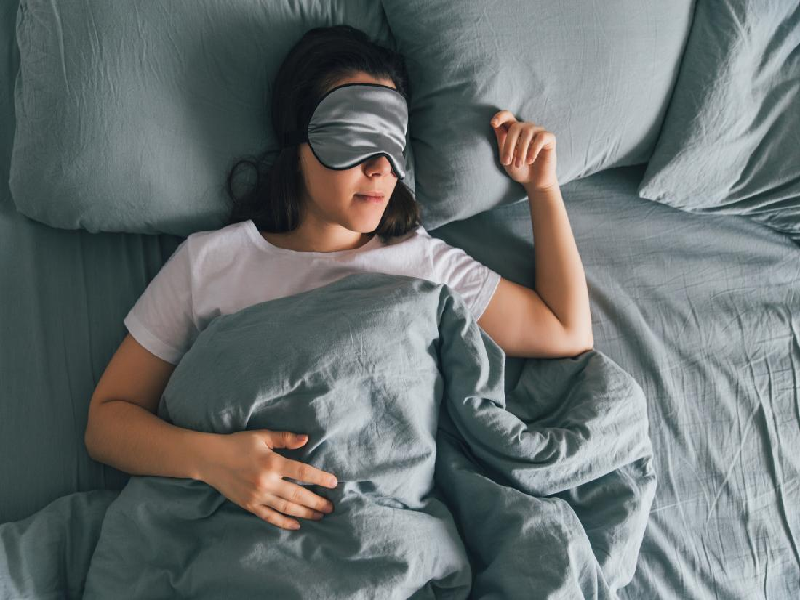Wellness
Follow this step-by-step guide to improve your sleep routine
Trouble sleeping? You’re not alone. Try and incorporate some of these tips into your sleep routine to promote better sleep!
Set the following day up for success
A bedtime routine that includes a few steps toward preparing for the next day can have several advantages. First, getting a head start on tomorrow’s to-do list gives you one (or two or three) fewer things to stress over as you try to fall asleep.
Take care of your morning chores: Setting aside 15 to 30 minutes every evening to prepare for the next day can help prevent hectic mornings and promote peace of mind as you get into bed.
Make a to-do list: Spending just 5 minutes writing a to-do list each night can help you avoid the sleep-disrupting habit of thinking about everything you need to do as you’re trying to fall asleep.
Try journaling to relieve stress: While journaling may not be enough to relieve severe anxiety or chronic stress, it can help reduce anxious thoughts. Physically writing about things stressing you out can help you visualise them leaving your mind and reinforce your sense of relief.
Wind down for the evening
You don’t have to wait until it’s lights-out to start winding down. Filling your evening hours with calming activities helps you avoid overstimulating your mind and body as the day draws to a close.
Cut out caffeine early: Having caffeine even 6 hours before bedtime can disrupt your rest. If you often have trouble sleeping, try sticking to beverages without caffeine after lunch.
Avoid strenuous exercise: Yes, regular exercise can improve sleep, but you’re better off saving intense workouts for morning or afternoon. Vigorous exercise shortly before bedtime raises your body temperature and heart rate, making it harder to fall asleep and potentially reducing the amount of sleep you get.
Play calming music: Playing soft, soothing music as you prepare for bed can trigger the release of hormones that help improve your mood. Feeling emotionally at peace can help your body feel calmer, too. While music may help you fall asleep faster and get better sleep, make sure you stick with calming tunes. Energising, upbeat music probably won’t have quite the effect you’re hoping for. For best results, try slow music without lyrics.
Make a hygiene ritual: It’s pretty normal for basic bedtime hygiene to happen on autopilot. But performing cleansing routines with more mindfulness than absentmindedness can help your brain and body tune in to your approaching bedtime. Washing your face and showering can feel like boring chores you’d rather skip, but it’s possible to make these mundane tasks more pleasant and relaxing.
Set the mood
Instead of simply switching off the lights at bedtime, try preparing your environment for sleep earlier in the evening. This gives your body time to adjust to the idea of sleep.
Dim the lights: Like electronics and the sun, electric lighting also produces blue light. Avoiding bright lights in the evening can help signal to your body that it should start preparing for sleep.
Check your bedding: Clean sheets and fluffed pillows can make bed seem more inviting, and a comfortable bed can help you get better sleep. For year-round bedding, go for easily removable, light layers so you can make quick adjustments if you feel or cold during the night.
Update your pyjamas: Changing into sleepwear can help your body feel more ready for bed, but choose your pyjamas with care. How they feel on your body is more important than how they look. Comfortable pyjamas can make bedtime something to look forward to, while tight or uncomfortable sleepwear can keep you fidgeting.
Get sleepy
Now that you’ve wound down and hopped into bed, how to drift off to sleep?
Think peaceful thoughts: Fixating on worrisome thoughts can keep you awake and stressed. Instead, try focusing on positive things that happened that day or events you’re looking forward to. Some people also find listing a few things they’re grateful for promotes positive feelings and inner calm.
Relax your muscles: Relaxation techniques such as progressive muscle relaxation often helps improve sleep. Beyond its potential sleep benefits, progressive muscle relaxation can also help relieve pain.
Don’t fight wakefulness: Not getting enough sleep can make you miserable, but fretting over your exhaustion and the precious sleep you’re missing won’t do you any favours. Instead, try to accept that it’s just one of those nights and focus on reframing your thoughts. The Blackberry Cream Smoothie looks like a gamechanger – skip to 5:54 if you’re keen.
